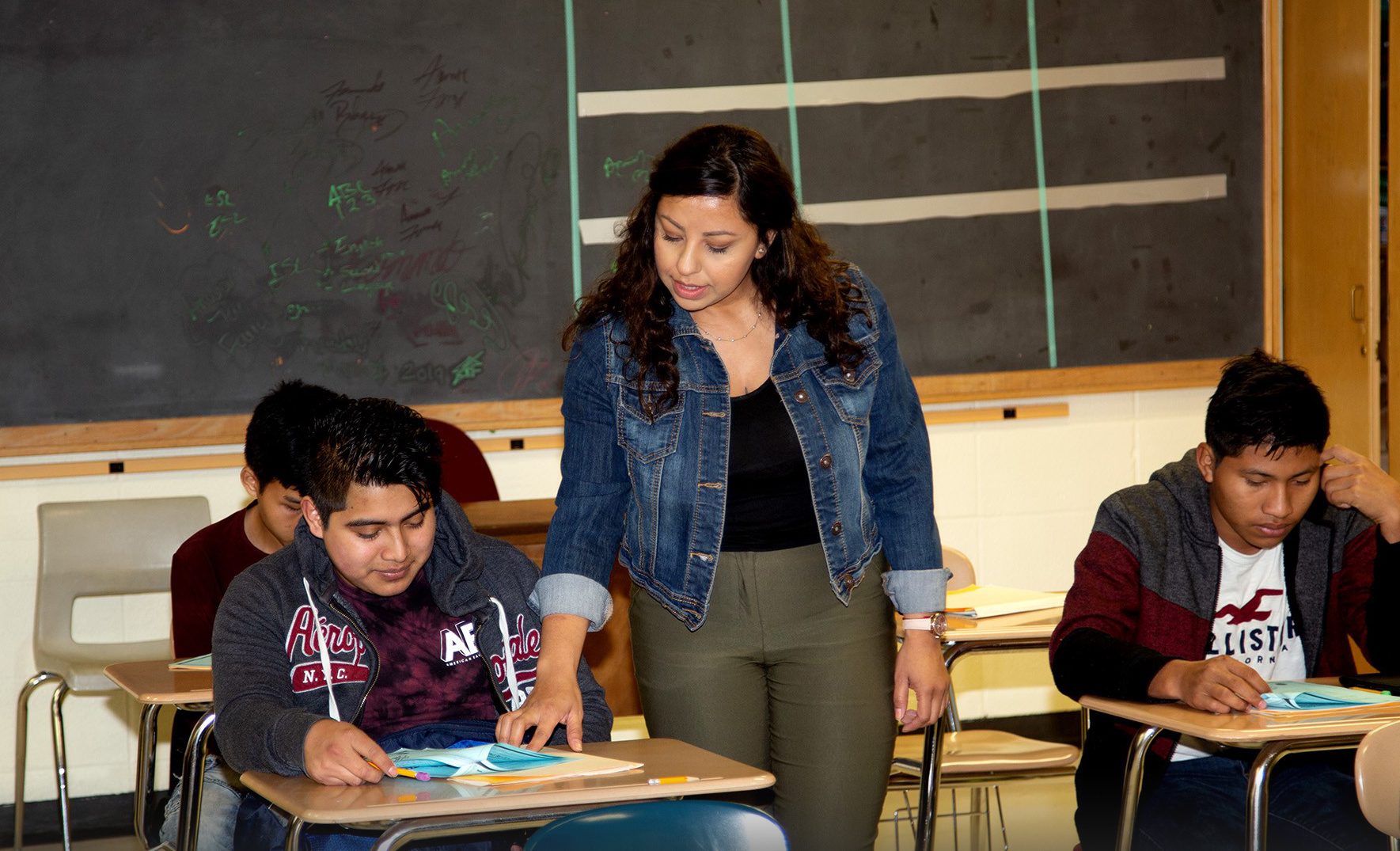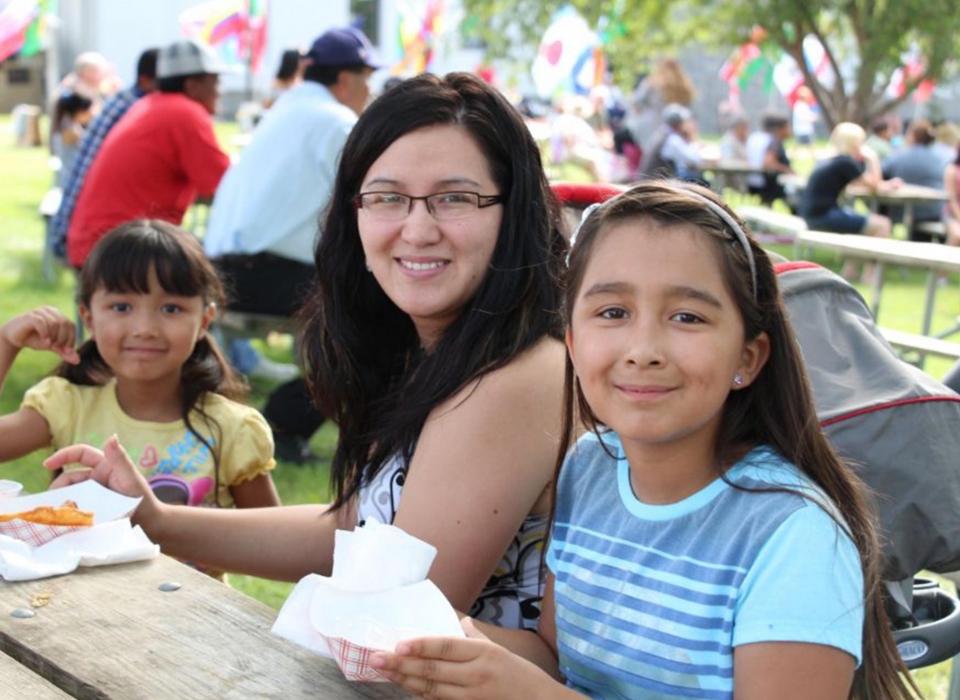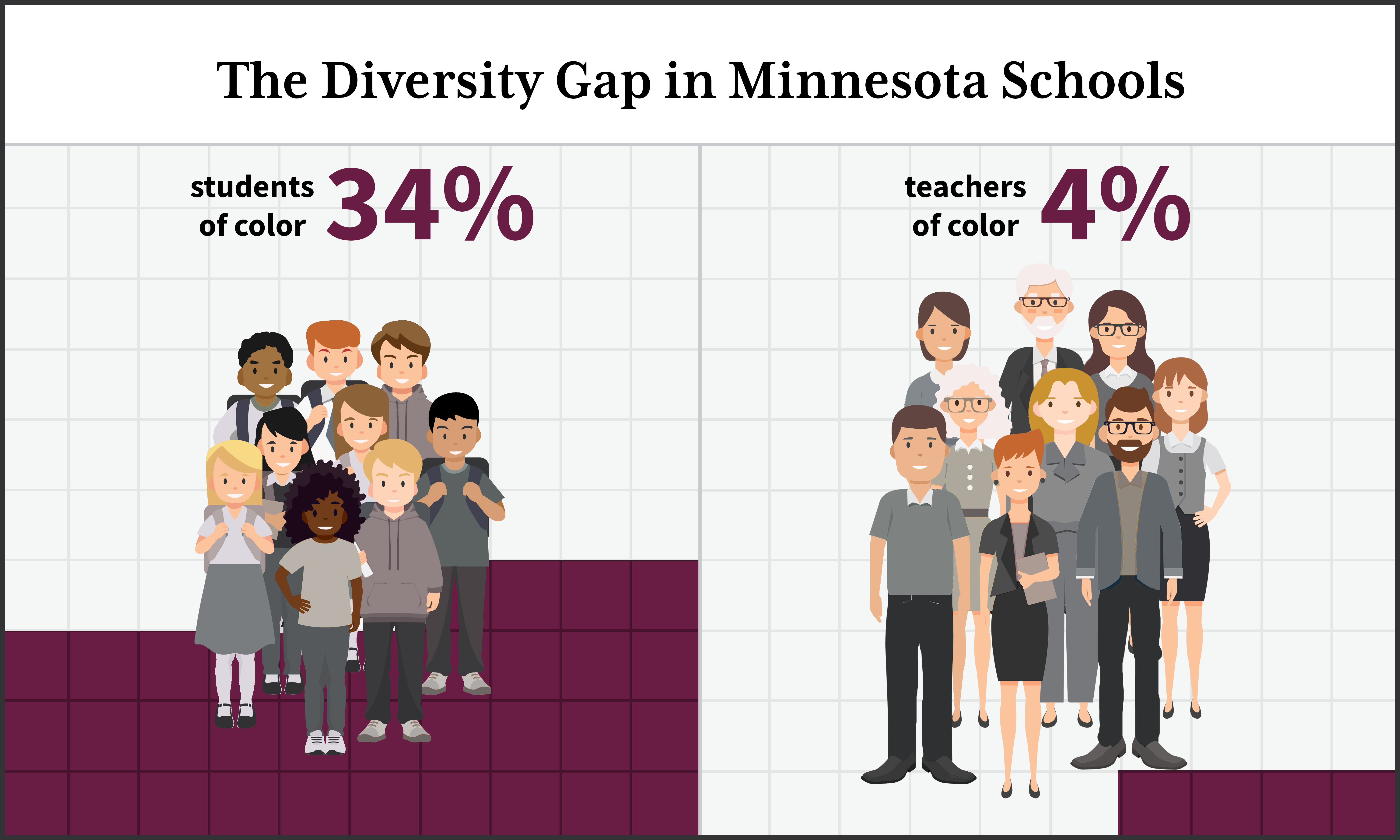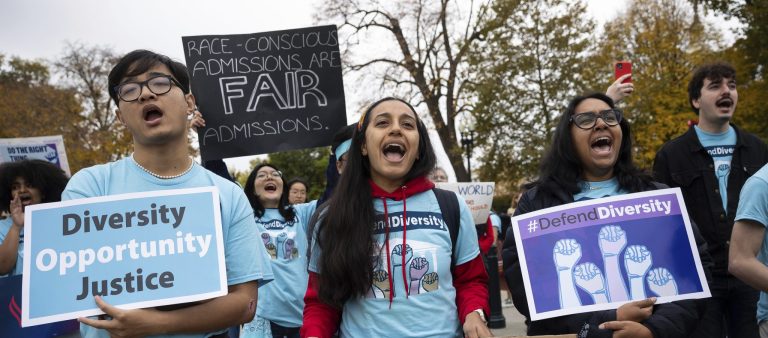Greater Minnesota faces a shortage of diverse teachers to educate the next generation of workers and leaders. Here’s how one community is using creativity, collaboration, and community voices to meet this challenge.
While many small towns struggle with the flight of their young adults and families, the farm county seat of Worthington (pop. 13,000) figured out a way to stay vibrant. In the 1980s, immigrants flocked to this prairie community nestled in the southwest corner of Minnesota, drawn by the possibility of jobs at a meatpacking plant and on corn and soybean farms. Many of these newcomers stayed, started businesses, and put down stakes in the community. In the process, they revitalized the town’s Main Street with new storefronts, filled its church pews, and contributed to the revenue base.
Worthington’s annual International Festival celebrates the area’s diverse cultures and their contributions to the town’s vitality. Photo Credit: Jose Lamas on behalf of the Worthington International Festival
Today, more than 78 percent of the approximately 3,200 schoolchildren in Worthington are students of color. They speak more than 40 different languages at home, and roughly a third are English language learners. As its school population becomes increasingly diverse culturally and linguistically, the district faces another trend line: a mostly white teaching workforce, many of whom have left the field or approach the cusp of retirement. This combination of demographic forces, plus an ongoing challenge with recruitment in rural areas, has led to a teacher shortage.
Worthington is not alone. A recent report from the Wilder Foundation showed that nearly 42 percent of Minnesota school districts reported that teacher shortages are a major problem and only 6 percent indicated that they are not a problem for them. And in rural areas across the state, districts report difficulty recruiting and retaining qualified teachers, especially teachers of color. A third of students in Minnesota are from communities of color, compared with just over 4 percent of teachers in the state.
Numerous studies show that students of all racial backgrounds benefit when their teachers reflect the diversity of their classrooms. Teachers of color especially help to improve learning and academic performance among students of color. According to a recent report from the Learning Policy Institute, the impact includes higher reading and math test scores, higher graduation rates, and lower rates of absenteeism. Students of color and white students also report having positive perceptions of their teachers of color, including feeling cared for and academically challenged.
Partnership for a New Teacher Pathway
In the Worthington school district, community leaders have begun a concerted effort to reverse the teacher shortage, with the help of many collaborators.
“Greater Minnesota needs more diverse teachers and better pathways for them—and this effort shows that the most forward-thinking school districts can work together to better prepare their students for a global economy.” —DEBBY LANDESMAN, McKNIGHT BOARD CHAIR
In 2018, the Southwest Initiative Foundation, with a planning grant from McKnight, began to convene conversations among the Worthington school district, Minnesota West Community and Technical College, and Southwest Minnesota State University (about 70 miles outside of Worthington). This year, with a $600,000 grant over two years from McKnight, the Foundation will support the Southwest Minnesota Teacher Preparation Partnership to implement a low-cost, place-based pathway to teaching for current Worthington high school students and paraprofessional staff. Participants would have opportunities to complete all their coursework to earn credits toward a degree in teaching without leaving Worthington.
“Greater Minnesota needs more diverse teachers and better pathways for them—and this effort shows that the most forward-thinking school districts can work together to better prepare their students for a global economy,” says Debby Landesman, McKnight Foundation board chair.
The partnership members are working to embed equity across the schools—including training current teachers and faculty in a process anchored by the Intercultural Diversity Inventory (IDI), a tool widely used across many industries to assess intercultural competency. They will also establish a community advisory committee that will include the voices of educators, families, and residents to ensure that the perspectives of Worthington’s racially and culturally diverse community members help shape the program going forward.

“At the heart of it, the partnership is an opportunity to lead people on a career path that will provide higher earning potential for their families, address the teacher shortage in rural communities, and have a positive impact on students who will finally see their reflection at the front of the classroom,” says Nancy Fasching, community impact director at Southwest Initiative Foundation. “All the partners are devoted to making this happen.”
“We see what a difference this will make in the lives of students and future educators,” she says. “It’s bigger than all of us, and a look to the long term.”
Investing in Education
At the McKnight Foundation, we recognize that investing in Minnesota students boosts our state’s long-term potential for economic and civic vitality. That’s why we support those working to close our state’s opportunity gaps by promoting equitable policies and practices.
In McKnight’s second-quarter 2019 grantmaking, the board awarded 121 grants totaling $19.9 million. This includes $1.2 million to grantees in education—particularly those working to engage families and cultivate effective educators. The full list of approved grants is available in our grants database.
In addition to supporting the Southwest Minnesota Teaching Preparation Partnership, McKnight awarded a grant to the Amherst H. Wilder Foundation for its Latino Leadership Program. The six-week Spanish-language program equips participants with leadership skills, builds confidence, and supports them in making changes in their community.
McKnight also gave a grant to the Greater Twin Cities United Way to support an initiative that guides students into family-sustaining jobs and reduces their educational debt. The initiative includes pathways that focus on careers in education, especially for racially, linguistically, and culturally diverse candidates, which is our particular area of interest.
Together with these partners, and all our grantee partners in the Education program, we aim to prepare Minnesota students to succeed in an increasingly global society.





